The Downgrading of "Bibliographie" from 15d to 15c
Stefano Ghisolfi recently made the 2nd ascent of Bibliographie, a proposed 15d (9c) first done by Alex Megos in Ceuse, France. This would have made Stefano only the 3rd person to climb the grade - behind the two climbers widely considered as the best in the world. But Stefano chose to say that the route isn’t 15d after all, but 15c (9b+). Why?
In this episode, Nate and I discuss grades, downgrading, egos, pressure, and how these two climbers handled the situation in an incredibly mature, progressive way. But is it the best way? Does it matter?
We don’t tweet. We scream like eagles.
Want more?
These are the types of conversations our Patrons get more of! Get 2 extra episodes every month!
FULL EPISODE TRANSCRIPT:
Kris Hampton 00:36
What's up everybody? I'm your host Kris Hampton.
Nate Drolet 00:39
And this is Nate Drolet.
Kris Hampton 00:42
And together we form Boogie Down Productions
Nate Drolet 00:46
I have no idea
Kris Hampton 00:50
Haha. Boogie Down Productions was a rap group, hip hop group in the, I guess late 80s, fronted by one of the best MCs ever to touch a microphone, KRS One. And KRS One was also known as The Teacher. And teachers give grades, so that's the connection.
Nate Drolet 01:20
Haha. Okay
Kris Hampton 01:20
We're here today to talk about the downgrading of Alex Megos' Bibliographie by Stefano Ghisolfi. And maybe maybe even more important, downgrading, and grading a general in a more broad sense.
Nate Drolet 01:40
Mm hmm.
Kris Hampton 01:43
What was your thought when you saw that...first off, I was psyched that he did the thing when he did it.
Nate Drolet 01:50
Yeah.
Kris Hampton 01:50
I was excited to see that. But what was your thought when you saw the downgrading?
Nate Drolet 01:57
Um, you know, I....he waited for a little bit.
Kris Hampton 02:06
Yeah
Nate Drolet 02:06
He like posted initially, he was like, "Hey, I did it." And I think it was maybe another two days or so and then he commented. And my initial thought.... I was a little mixed, because normally, a lot of times I see people downgrade things, and I feel like it, there's a mix of reasons why things get downgraded. And I was like, "Oh does he just not feel like he's like, up to the challenge?" But really, like, he did a great job of explaining it. He was like, "Hey, like, I found better beta", which makes complete sense. Especially with this route, like, when you go
Kris Hampton 02:44
It's pretty new. One person had done it.
Nate Drolet 02:45
It is brand new.
Nate Drolet 02:47
Yeah, one person had done it. And then after that one person had done it, you know, Megos did it. There was a lot of video of Megos trying it. So from there you already... anyone who wants to try it already has such a leg up, because they know, "Okay, this is a viable beta. Anything I can improve upon from this is a step in the right direction." Where Megos had to fully invent the wheel on this thing. So it makes sense that he found better beta for both cruxes. You know, and honestly, like, Stefano is kind of the, one of the most accomplished sport climbers there are out there. I mean, he's done...this is his third 15c. He's done a bunch of 15bs. And he's really just kind of grinded for years. Like, so it's really cool to see, like, you know, it wasn't that long ago that for him, like spending this much time for 15a was a huge deal. Like,
Kris Hampton 03:46
Right
Nate Drolet 03:48
Yeah, it's not like he's just some comp monster who had a little extra time post Olympics and was like, "I guess I'll go out. I have no clue what grades mean, but I did the thing qnd who knows? Maybe it's 15b, maybe 15c."Like he I mean, this is someone with a lot of experience. So yeah, I mean, I, I think his reasoning made complete sense. And I thought he was really respectful the way he did it. I like that he waited, that wasn't his initial first post was like, "Hey, it's, I think it should be downgraded." It was, "I put in this work, I'm celebrating it. I'm excited." And then later on, he, you know, came back and said, "Hey, this is more on how I feel."
Kris Hampton 04:31
Yeah, I think that was a smart play. And I think most people, when they look at... when they see a post that's like, "Oh, here's this lauded route that I just did, and I think it should be downgraded.", I think most people are like, "Oh, shit! Shots fired!" you know?
Nate Drolet 04:51
Yeah. Yeah.
Kris Hampton 04:53
And I and that's not actually the case.
Nate Drolet 04:57
At least not right now. haha
Nate Drolet 04:59
Yeah
Kris Hampton 04:59
Haha. Yeah. I think these two guys did a really great job of explaining that in their posts and I'm going to read Stefano's post here. He said, "Yesterday and the day before I wanted to focus more on my journey, the climb and the people around the story of Bibliographie. I avoided on purpose talking about grades, but seems inevitable to do so. I took a day to think about it to find the right words. When I started trying Bibliographie, I couldn't imagine I could climb it in one season. Watching Alexander Megos's video, the route seemed impossible. And if it took him 60 days, I start projecting it, thinking to come back over the years. In the end, I felt good on it from the beginning, found new beta for the crux, switching left and right hand compared to Alex, and new beta for the second crux. I climbed it in a total 25 climbing days during this three months, and I tried to compare it to Change and Perfecto Mundo, changing my mind every other day. Change took me around the same time and Perfecto Mundo, bit more. But I feel all the three routes could fit all in the same grade range. I know I can climb a 9c, but for a route to be that grade, it needs to be much harder than the existing 9b+s and Bibliographie for me isn't. This doesn't mean I want to belittle the performance of anyone, neither Alex's or mine. It's still an incredible achievement, especially the first ascent that includes many more hard mental and physical aspects. But I just wanted to be honest about what I felt during the whole process on Bibliographie. And this is just my opinion. Hopefully, we'll listen to others soon. I would have been happy to be the third person to have climbed 9c, but in my heart, I know I'm not yet." And part of me....this, this is why I wanted to have this conversation with you. Part of me is like, do we need to still explain ourselves with this stuff? And part of me is like, hey, really good job on a lot of fronts. You know, number one, not not be making sure you say "This doesn't belittle Alex or my achievement."
Kris Hampton 05:13
"This is still a major thing for both of us and the world of climbing in general. And I'm being honest and transparent about how I felt about it." And I think that's great. But I'm also in the camp of shouldn't everybody just know now that these grades are a suggestion, and they're not this hard, etched in stone thing that we can't waver on, we can't go back and forth on? You know, that it's, it's a super blurry thing to even begin to talk about. So I had mixed feelings on it.
Nate Drolet 07:50
I mean, that'd be nice, if that was how it was.
Kris Hampton 07:55
Haha yeah it would.
Nate Drolet 07:55
If we could just say, "Hey, like, I think", you know, like, in prep for this conversation, I was thinking about different routes. And Take That Katie Brown came up.
Kris Hampton 08:07
Yeah.
Nate Drolet 08:08
Big, reachy move. You have done it. I haven't. I've tried it a lot. I've gotten through the crux on point once and fell up higher. But man if that thing...like if someone was like, "Yeah, that's 13 D", I wouldn't blink. I'd be that's
Kris Hampton 08:26
That's what I that's what I honestly feel it is. It's graded 8a, graded 13b. When I did it, I felt like it was one of the hardest routes I'd ever done qnd it felt like 13d to me.
Nate Drolet 08:37
Yeah, like that..and it's a huge move with zero intermediates. Like there's just no, like, you can't be stronger than this move other than to just be really strong at max extension, for people our height. And yeah, like, to me, if I were to climb that, like, if we lived in a world where you just suggested the grade you felt, I'd be like, "Yeah, 13D, all day." Now, if someone who was six foot four came by and was like, "Yeah, I think that's like 13b, maybe 13a",...I and it's funny, because in this case, I'd be like, "Yeah, that makes complete sense that that should feel this way." Because this is so obvious. It's such a reach dependent climb, that I can detach any sort of ego or feelings of like, self worth from this rock climb. Now, if it's something else that isn't just a giant, five and a half move five and a half foot span on it and I'm like, "Wow, this feels like the hardest thing I've ever done" and someone else's like, "Eh, feels about two grades easier to me.", it's hard for me not to like bristle a little bit.
Kris Hampton 08:37
Yeah, your ego is going to get involved with it, whether we want it to or not.
Nate Drolet 09:48
Yeah.
Kris Hampton 09:49
You know, and I think that's a... we are always hearing one of two kind of ends of this spectrum of thought when we're talking about grades It is either the people who are like super grade chasing on one side, and all they want to talk about is grades. And then the other side who's like, "Grades aren't important at all. I don't care about grades."
Nate Drolet 10:11
Haha. Yeah.
Kris Hampton 10:12
"How hard was that thing you just did?" And, you know, it's, we have to talk about them. And, and I'm glad that Stefano in this post says, "No, I purposely avoided talking about the grade for those couple of days. But I think it's inevitable. I don't think I can avoid it."
Nate Drolet 10:32
Yeah. Yeah, it, you know, it's, I really appreciated...so Megos made a post, I think, the next day or day after. And one of the things he brought up in it was, how he was like, "You know, in my mind, I kind of thought it was like 15c, but other people made me feel like it was probably harder."
Kris Hampton 10:53
Yeah.
Nate Drolet 10:54
And so, I mean, it's the same thing, like taking outside input. And I gotta say, when he did it, I was like, "It's got to be 15d"
Kris Hampton 11:01
"15d. Of course it is."
Nate Drolet 11:02
Of course, like he did Biographie in three tries in a single session. Like, no one, no one talks about sending 5.15 in a single session. You talk about sending hard boulders in a single session. Three goes one day, you know, a route that's 50 feet to the left of this new climb that just took him 60 days.
Kris Hampton 11:22
Right.
Nate Drolet 11:22
I mean, that's math. Haha
Kris Hampton 11:25
Haha. Which doesn't always apply here, sadly
Nate Drolet 11:29
Ugh no, and
Kris Hampton 11:30
As much as we want it to
Nate Drolet 11:32
No, and, and we wanted it to. Like, years ago, I was in Ceuse, I think five years ago, and he was there. And I got to watch him on some of his earlier earliest attempts on that line. And it blew me away. Like I've never seen, I think he linked like a big four bolt section somewhere in like, maybe the first third. And I've never seen so many hard moves linked together. Like, it wasn't just like, "Oh, this person strong and I can't tell how hard this is." It was like, "No, he's holding tension, trying hard and doing that for like four straight bolts." It was wild. I was like, I don't remember him coming down being like, "I don't, I don't know. I don't know if it can happen." And I was like, "Yeah, I don't know, either man. Like I'm not not trying to be disparaging, but that looked nails and you climbed only like on a third of it." So of course, when he did it, I was like, "Call it what you want! Call it 5.16. Like, I don't know."
Kris Hampton 12:32
Yeah, and it's hard to hard to make a shift from those first days of trying it, when you're figuring out moves, when every single move feels at your limit to "Okay, I figured out the best method. I've now got it dialed in. These, this whole section feels drastically easier than it did at the beginning of this process." It's it's tough to make those shifts. And especially when you're Alex Megos, who hasn't done a ton of first ascents, hasn't done much developing at all, you know, hasn't had to figure out a ton of sequences on his own, that that whole process has got to be a little bit confusing, and you've got all this pressure from the outside world. I've got his post pulled up too, and I'm gonna read it. And this was in response to Stefano's post about the grade. "9b+, 9c , what's the difference and how do you know which grade to give? At the beginning, I thought the number of days you invest in a climb is the best indicator of how hard it must be. Therefore I thought trying Bibliographie for 60 days must be harder than anything I've climbed before. When the word spread that I did the route, immediately, people immediately started speculating."
Kris Hampton 14:02
I think they were speculating way before.
Nate Drolet 14:05
Haha
Kris Hampton 14:05
"I always had the feeling that 9c might not be the appropriate grade for the route. But I felt some pressure from the climbing world which is already saying that it must be 9c if it took me 60 days. I also didn't have a very good feeling for the grade anymore in the end because I simply changed my beta so many times I had such long breaks on the route and was struggling to compare it with other routes I did. I underestimated how much of a difference it makes to know you have the right beta. On Bibliographie, I thought I had good beta until I came back a season later to completely change it again. And that happened twice. So in the end, I probably spent the bigger part of 60 days figuring out beta, changing it again and not being sure that I can do it. I became more and more convinced that it had to be harder than anything I'd ever done before. When Stefano and a few others started trying, they found new beta for both cruxes. Both betas I hadn't tried when I was working on the route. I asked myself 'How can that be? I spent so many hours on just talking few square meters of rock, I should have seen every option.' I realized at some point, I was so convinced that I had the right beta that I stopped trying other things. I, of course, touched the holds of the new beta, but I never actually tried 100% to see if it makes sense. Every time I change beta on the route, it was mainly because I couldn't climb the previous beta. At a certain point, I just decided that this will be the beta I'll climb it with and I stopped trying new things. I did succeed in the end, but I've learned something for the future. I'm so grateful for your honest opinion. Stefano. I agree with 9b+ and now I'll keep looking with Stefano for the next potential 9c." I mean, like we've already said, I think it's brilliant of these two, to have this conversation. And, you know, something that, in the very beginning of this post that Alex said that, that I think is a really interesting take is that, in the beginning, he thought the number of days he spent on a route was some indicator of the difficulty. And while it might be some indication, I think a lot of people put way too much focus on the amount of time a thing takes in relation to the grade. Because you and I both have had, you know, V8 take us longer than some V10s
Nate Drolet 14:43
Haha yeah
Kris Hampton 14:47
Or 13B take longer than some 13c's or d's. So 100%, there are always going to be these outliers that don't fit you perfectly, take you longer, you know. They may not be harder. They might just be harder for you. Because you lack whatever, you know, skill or whatever component is needed to climb it in its most efficient manner. And with a first ascent, there's a lot of that at play, no matter who they are. No matter if you're Alex Megos, Adam Ondra doesn't matter. The first ascent is always going to be harder, because you're figuring out sequences. You're... in this case, you're doing it pretty much on your own, you know. And so you're seeing it through only your lens, instead of having the benefit of Stefano gets on it and he can see it through Alex's lens, via all the video,and then he gets to apply his own lens to it and see things in a different way. So it's always going to be easier for the next person.
Nate Drolet 17:37
And Stefano got to, I'm assuming you probably saw Seb, Bouin. climb on it. Dave Graham was out there climbing on it. It wouldn't surprise me... I know Daniel Woods and other strong climbers are out there... wouldn't surprise me if they went up it. So I mean, even if he just watched them and didn't adopt any of their beta, like he got to see other people on it, like, get other opinions of, you know, I don't, you know, like, "I think this bolt section is really hard. But you know, this section like you can, you'll definitely be able to rest here." Even just having these conversations is so helpful with sport climbs.
Kris Hampton 18:15
Yeah.
Nate Drolet 18:16
And you know, like, for Megos, it was just him. Like, that's a huge difference.
Kris Hampton 18:22
Yeah, another thing Alex says in this post is that, you know, he would come back a season later, and it would feel different to him than it did prior. And I think that's really important. And it makes me happy that.... I'm glad Alex gave it the grade he did. Like A, I think it's a I think it's a needed thing to allow for maybe this is the hardest thing that's ever been done. One of the hardest things that's ever been done. Maybe it's harder than anything I've climbed, you know, allow yourself that room. So I'm glad Alex said, "Maybe this is 15d". And, and then I'm glad that he rethought along the way, based on how it felt in that moment and subsequently, when Stefano does it, he gives the grade pretty quickly within a couple of days. And where I'm going with this is our memories are horrible.
Nate Drolet 19:26
Yes
Kris Hampton 19:27
You know, there's a there's a massive body of research saying that our memories are very, very fallible. And I was talking about this with our mutual friend Zach, a while ago, about do you think it's better to give a grade after you've reflected on it for a while, or immediately after? Do you start thinking about the grade and give it the grade then or after days and days of reflection? And I could see it both ways. So what I did, just as a, you know, N of one experiment, I asked Zach, you know, what's the something...there's a measurement that we are using regularly, you know, mileage when you're driving. We're always doing it. We know how many miles we've driven. We look at Google Maps or GPS, and it says, "This many miles", and then we drive it. So we're constantly testing this and, and it's a concrete thing. It's not subjective, like grades are. So we should we should be really good at saying, "Okay, I know exactly how far a mile is", you know, we've we've driven, we've traveled, millions of them. So Zach, and I were talking and he said, from this boulder to this boulder on the highway, they're both right off the highway, half a mile. And then we drove it, and it was five miles. In his memory, it was only half a mile away.
Nate Drolet 21:08
Yeah.
Kris Hampton 21:08
And we had driven between those boulders a bunch of times. But the reality is that, you know, it's he's 10 times too short. So I don't know how we can expect to come back to a grade a season later, a year later, and say, "Okay, now I'm sure it's this. I've reflected on it for a year. Now I'm positive it's this grade." I just don't think we have the ability to do that. We can think we do. But I don't think we do.
Nate Drolet 21:48
Yeah, I can see where you're coming from with this. I think one time where it can change...for me personally, is the moment like those times where you're like, "Oh, man, I'm really close to doing this." And I feel like I was much more susceptible to this earlier in my climbing, which probably means I'm doing it right now but I don't realize it. But it's that idea of like, "Man, I'm real close, like, oh, any go now, any session." And then you come back the next year and you're like, "Oh, actually, now I'm close." And you realize you were never close. Like you were maybe geographically close to sending something. But you're like, "Oh, I thought this was the link? No no no. Two more bolts. That's the link."
Kris Hampton 22:31
Yeah. Yeah. And I think that comes back to now you're on it in the moment. You know
Nate Drolet 22:38
Yeah.
Kris Hampton 22:38
So you're, your in the moment reflection of how it feels and what the grade might be, what the difficulty is, is far more appropriate than, "Oh, I thought about it for a year. And now I can definitively say it's this hard."
Nate Drolet 22:59
Yeah.
Kris Hampton 23:00
So I'm glad Stefano stepped up a couple days later and said, "Here's, here's what I really think" instead of eight months down the road, changing the grade on his scorecard and saying, "Okay, I at the time, I thought it was this and I went with this grade, but now I'm not so sure."
Nate Drolet 23:19
Yeah.
Kris Hampton 23:20
So I think it's I think it's great to have this level of honesty, this level of
Nate Drolet 23:27
maturity
Kris Hampton 23:28
Open conversation. Maturity, right. From these guys. Not getting upset. Not feeling like "I have to take this grade because Alex Megos said it was this grade. I'm gonna be honest about it." And then Alex going, "Yeah, I'm really glad you were. Thank you for this. I agree that this could be the case."
Nate Drolet 23:50
Yeah. Yeah. Like this. I think it's great. I mean, this is not a type of conversation that is normal around downgrading.
Kris Hampton 23:59
Right
Nate Drolet 24:00
Not even at that high of a level. Like, there are hurt feelings. It comes off often it can come off as a personal slight,
Kris Hampton 24:10
And some times it is,
Nate Drolet 24:12
I mean, yeah, yeah, it definitely can be. Um, so yeah, you want to get into I guess....talking about why things get downgraded, why things never get upgraded, things like that? Like why do things... is there a reason why things need to be downgraded?
Kris Hampton 24:34
That's an interesting question, actually. I think it honestly matters more in the position that Stefano and Alex and Adam and Seb and that that crew of climbers who are at the top of the sport, I think it matters a lot more for them. It matters for them to like lay the groundwork of progression, for the sport. Does it matter if my V8 gets downgraded to V7? No, not not at all. You know, that's not gonna, it's not gonna hurt my feelings, first off. Though there are people out there, who they'll have climbed, you know, 13a, or whatever and then if someone says, "Oh, that that's probably more like 12d", they get offended by that. And you know, there is intent when people say things like that, and it can be a harmful intention. Or it could just be, you know, six months down the road, they say it on their 8a, and then Person A sees it and is like, "Oh, I can't believe they said this", you know.
Kris Hampton 25:51
Haha
Nate Drolet 25:51
Yeah, yeah. I mean, I don't know about you, but I've...there are plenty of times where I've climbed something, and maybe it's new beta that comes out. Or just simply like, I climb it and I'm like, "Ah you know, yeah, I think this V8 is probably V7". But I won't say anything, because I know someone who may have just climbed it and they're like, "This is my first V8!". And I'm like, "Yeah, it is." And I'm gonna say it is too
Nate Drolet 25:52
Because I don't want to like, I don't want to be a dick.
Kris Hampton 25:59
Yeah
Nate Drolet 26:02
Like, you know, and it's like, okay, this is I don't know, like, what is the difference in me saying this is either like my 150th. V8, or like my 300th V7? Like, it doesn't matter to me. But this brings joy to them. And like, especially, yeah, I don't, I would rather... like there were times where, and I'm saying as far as this because I log things on 8a. So like, and if someone sees it, you know, otherwise, it'd be great. If I don't, if you don't log anything, awesome. You can like think whatever you want. But, yeah, there's def, there's been plenty of times where I will not comment on a grade because I'm afraid of..yeah, I don't want to hurt someone else's feelings. I've also definitely felt bad because I've been the guy who I have done like, you know, the 13a or b and been like, "Oh, it's probably 12d" and, you know, log it as such. And then like, two years later, I get a DM in my Instagram, like, "I can't believe you called this 12d!"
Kris Hampton 27:17
Yeah, totally. And I've, I've been the person who'd like dances around it in conversation. You know, if somebody is like, "Oh, I really want to do this route. You know, it's this grade." And I'm like, "Yeah, I've done that route. You know, I did it before the sit down rest was found and it felt light on the end that end of the grade when I did it", you know, and you're dancing around saying, "Oh I don't think it's that hard." Which is an interesting place to be, you know, the... I'm a person who I believe that grades are necessary, I think it's important to try and measure our progression, the progression of the sport, like Stefano, Alex, Adam are doing, or our own progression as individual climbers. I think it's a necessary thing. But I've spent a lot of time wrestling with the idea of grades and what they mean to me. And for me, it's just, it's a matter of a gauge for how much it might challenge me. And then if I find a V7 that challenges me more than this V10, great. You know, I'm more interested in that challenge. So, as a result, I've wrestled with, do I take the guidebook grade? Do I be honest about my thought of the grade? What's the way to go about this? It's a personal challenge to me. Does it mean anything to anyone else if I do it one way or the other? And I'm still not sure. It's a complicated topic.
Nate Drolet 29:08
It is. And I mean, also, like, it would be complicated enough, if we had consistent ideas of how we were actually performing. But we don't. Like one season, I'm gonna have way more endurance. Another season, I'm gonna be more powerful. Another season, my fingers are gonna be stronger, but maybe only in full crimps, not in pockets. Things change. Like, when you're a brand new climber, pretty much every week, everything gets better. It's amazing. Your endurance, strength, power, all things improve, you know, basically linearly for a while. Then you hit a certain point to where things don't improve unless you specifically work on them. Like you know, you've been, oh you've been climbing four years? If you aren't working on in your endurance, your endurance isn't gonna get better just by continuing to climb like you have been. Your power isn't going to keep getting better unless you're focusing on it. And once you've been climbing you know 15+ years, especially like you look at a lot of these guys, there's such a difference in specific shapes. Like I remember Adam Ondra went out to... he went out to England to try...and he tried Rain Shadow, Steve McClure's 15b. And I think Rain Shadow... Rain Dog... whichever one the 15b is. I forget, there's a 9a, but like the .15b. Either way. He went out and tried it. And, you know, he came down and he was like, "Yeah, I think it's hard. But you know, this is a very specific style. And I'm not in shape for this." Even though...I think he had climbed like 15c, literally the month before, like,
Kris Hampton 30:48
Right
Nate Drolet 30:48
Like he was going out just smashing things. He was like, you know, "This is a very specific style. I'm not fit for this. So I don't fully know, but it feels hard. I'm gonna say it's probably 15b like, either way, great job, Steven McClure". But this is Adam Ondra, you know, king of the world, greatest rock climber. And this is a grade below... two grades below what he climbs. And he still was like, "I don't know, it's it's just specific." He was in route shape, just not this route shape.
Kris Hampton 31:16
Right
Nate Drolet 31:17
Like, so we have these big changes. But also, anyone who's trained consistently knows that day to day performance fluctuates. Even if you eat well, you sleep well, you've rested. Man, sometimes you just go in. And it's hard to tell with climbing, but if you lift weights, or honestly, like, for me, I find the hangboarding to be something that can fluctuate a lot. Like,
Kris Hampton 31:40
Definitely
Nate Drolet 31:41
Like I can, if I wake up, and I feel good, for me lifting weights or strength training, pretty consistent, you know, with a little variance. But hang boarding? Who knows.
Kris Hampton 31:52
Haha
Nate Drolet 31:52
Like, man, some.... like....it's got global consistency across months. But man, there's some days where I'm like, "Man, I'm coming off a rest day, I feel good. I've done everything smart, drank a lot of water, slept great." Oof, I just struggle. And but some, sometimes those days you go out to your project, and you don't know it, and you just fight as hard as you absolutely can and you send it and you're like, "This is the hardest thing I've ever done." You know, and as far as your exertion level you put out, maybe it is. But had you come out on a day where everything was just like going perfectly and your body was ready for it, maybe it would have been one of those events where you climb it and you're like, "Oh, it was almost like I didn't even have to try. I was on autopilot. And I can easily climb another grade harder."
Kris Hampton 32:41
Yeah. Yeah, it's such a, we often do that. We often, you know, send a thing. We have like the magic attempt and we find this flow state and everything comes together and you're firing on all cylinders and the thing goes down and it feels easy.
Kris Hampton 33:00
You hear that story all the time. And then we take that one attempt, the outlie, attempt, the the perfect, everything came together attempt and we go, "Well, it felt easy, so it must be this grade."
Nate Drolet 33:00
It's amazing.
Nate Drolet 33:13
Hahaha
Kris Hampton 33:14
Now forget, forget the 30 other attempts where I was thinking, "Oh, this thing must be this hard". Nah, it's this easy, because I did it this easy.
Nate Drolet 33:25
Yeah. You had this one unicorn moment and you base everything on that one.
Kris Hampton 33:31
Yeah. And there's so much wrapped up into how we decide to define the the challenge that it gave us. You know, there's our own self worth there. There's our own view of our own abilities. You know, "Oh, well, if I did it, it can't be this hard."
Nate Drolet 33:50
Oh, I hear that all the time.
Kris Hampton 33:52
Yeah, exactly. And people don't give themselves enough credit in a lot of cases. I think these guys, Stefano, Alex, Adam, you know, they might have a better handle on what they're capable have. Also, maybe not, you know, I'm totally spitballing here. But they've spent enough time at this difficult grade to to have an idea anyway, at least of how it feels to them. I also want to highlight though, it could be 15d for Alex and 15c for Stefano. Maybe it felt that way. You know,
Nate Drolet 34:39
Yeah. Maybe 16a for Ondra
Kris Hampton 34:41
Yeah, we don't have to always agree on what the grade is. We just don't.
Nate Drolet 34:49
Yeah, yeah. And I mean, you know, for different body types, different styles like, things are just gonna feel harder.
Kris Hampton 34:57
Yeah, there there are things we can change about our climbing and there are things we can't change. You know, we can't change our height,. If there are no intermediates, you know, if you can't reach the holds, it's going to be dramatically harder for you most likely.
Nate Drolet 35:15
Yeah.
Kris Hampton 35:17
We can't change a lot of the things that contribute to the difficulty of a rock climb. A lot of the things we can. If you're just bad at two finger pockets, that doesn't mean the route is harder. That just means you need to up that skill for yourself. You need to level up on to finger pockets. That's a tough thing to know, though. You know, it feels this hard. Is it something I can change or something I can't?
Nate Drolet 35:44
Yeah. Yeah. It so it's tough.
Nate Drolet 35:50
What situations...okay, so we've talked about how, you know, downgrading is obviously thing and it shouldn't be, you know, ideally, it shouldn't be personal. What are some good reasons that things should be downgraded? Like, why do things get overgraded?
Kris Hampton 36:10
I think there are a lot of reasons. You know, having having been involved in a community, like at the Red, where there was this, this really great community built by Ray Ellington and Yasmin Fowler, and you know, this whole group of people who put together this online guidebook and point system for climbing in the Red. And it created this really great sense of competition, and people were out really getting after it.
Nate Drolet 36:41
Yeah.
Kris Hampton 36:42
And, however, what would happen is, somebody would put up a new route, and they would have their own way to grade. You know, I remember there was a small crew of people putting up a lot of first ascents, who graded based on how hard it should feel on the onsight
Nate Drolet 37:02
Oh!
Kris Hampton 37:03
Which is not the like, standard accepted method of grading, as I understand it,
Nate Drolet 37:11
Yeah. Everything's 5.15 in Rifle.
Kris Hampton 37:14
Haha. Exactly. So those routes, for a better onsighter, would feel drastically easier than then the given grade.
Nate Drolet 37:30
Hmm.
Kris Hampton 37:31
So they, people would go there climb those, relatively new climbers, and their idea of, you know, they would work it, work it, work it do it. And then they'd be like, "Well, 12b is supposed to feel like this." So then they would go do an old school 12b, and they would be like, "This isn't 12b. This is 12d, at least. You know, I know, I've done these two 12b's"
Nate Drolet 37:59
Yeah.
Kris Hampton 38:00
So I do think that trying to grade things accurately.... I think I'm answering your question here haha...trying to grade things accurately, will in some sense, since create a better environment for the people coming up through the grades and learning them and create an environment that is less less caustic, when the grades wildly vary from place to place, route to route, boulder to boulder, whatever. And maybe reduce a lot of the, the, you know, "Well, this can't be this great. I know it's not because I've done these two", that that kind of attitude, that kind of discussion that never ends up in a good place.
Nate Drolet 39:00
Yeah
Kris Hampton 39:00
I would like to believe that. I don't know if I do. But I would like to.
Nate Drolet 39:05
Yeah, you know, it's tough, like because we don't have, there's no, like 12a measuring stick.
Kris Hampton 39:12
Right.
Nate Drolet 39:13
And if anything, that's where, you know, it's kinda like what you were saying, that's where I think a lot of issues can derive from and you see it going both ways. Like, you know, in Hueco Tanks, Full Service is considered the benchmark V10. John Sherman, when making the V grades, he was like, "This is it. This is V10." Let me tell you, I think that thing is....I've done quite a few V11s out there. Not many are as hard as this thing. Like, is how I feel.
Kris Hampton 39:41
Same.
Nate Drolet 39:42
But a lot of people will be like, anytime they climb anything out there, they're like, "Ah I don't think this is V10. It's not as hard as Full Service."
Kris Hampton 39:50
Right
Nate Drolet 39:51
And I'm like...yeah, I mean, to me, Full Service... like, even though yes, he called it the benchmark, it's also polished with age, whatever, blah, blah, blah. Most people who have climbed it are like, "Yeah, if it's harder than Full Service, it's V11". Like, that's just the standard. But there are some of us in that group. But then there are people who are in the other group who are like, "Well, if it's easier than Full Service, it has to be V9." And I've even heard someone try and argue that it's Full Service is V9, which makes no sense.
Kris Hampton 40:20
Hahaha
Nate Drolet 40:21
It's like, wait, hold on, it's the actual benchmark. It is the one. But so yeah, like, we don't have benchmarks for what a grade should be. And even if we did, like, is that the upper end? Is that the middle? Like, there has to be a spectrum, right. Like, we can't say everything is exactly this, or we would need, you know, 26 letters. We would need to use all 26 letters for every, you know, 5.12, for every 5.13, like every single number grade,
Kris Hampton 40:49
It's just going to get more and more confusing, you know, and Full Service is a really great example. I hear it brought up often when trying to decide if something's V10 or not, same as you. But John never did it.
Nate Drolet 41:05
Haha
Kris Hampton 41:05
John never climbed the thing. So can he definitively say "This is V10"? I don't know. Do you have to be able to do do you have to climb the thing before you can give it a definitive grade?
Kris Hampton 41:18
Oh that's kind of funny.
Kris Hampton 41:21
I don't know.
Nate Drolet 41:22
I had never really connected the dots on that one. Yeah, I don't know. So you have that
Kris Hampton 41:27
I'm sure you know, Dale Goddard did the FA and Dale may have called it V10. But we very often come back to "Well Verm created the scale, and he called this V10, so it must be the gold standard for V10."
Nate Drolet 41:43
Mm hmm.
Kris Hampton 41:46
I don't know if he gets to have that that badge because he never actually climbed the thing
Nate Drolet 41:52
Yeah, I don't know. So it's tough. Yeah, but I mean, so a lot of things get developed, you know. So what we see often is, things get developed. And normally, you'll see a lot of the highest end climbers, they'll put things up and then it starts, they start to get a lot of repeats. And then the grades eventually start to dwindle. Very normal. Like you look at a lot of the stuff like Dave Graham, Daniel Woods, all those guys who put up stuff in Colorado, things normally end up dropping one to two number grades with time. I mean, but it kind of makes sense. New beta comes out. And you can, a lot of times you can see the original FA beta because they have video of it. And it's like, "Oh, there's a new foot that people use now." Or what will happen sometimes, too, is people like someone will grade based on an area. So this happened in Arkansas. Dave Graham went out there. There weren't many hard things already established. He climbed what was and he was kind of just graded based on that. Which for someone who travels as much as he does, that kind of makes sense. It's like, "Okay, I'm going to recalibrate. This is what V12 feels like here. This is what V13 feels like here. I'll grade based on that." And a lot of those things he put up got downgraded, you know, one and two, I think sometimes even more grades. But a lot of those things he first based on also got downgraded. And it was just a matter of this was an area that wasn't as popular then. People hadn't climbed there a whole lot and hadn't had time to settle out, like beta hadn't been found, consensus just wasn't reached.
Kris Hampton 43:29
Right. And if you have a, you know, V14, V115 climber coming in and doing V12 first ascents, it's likely he didn't find the best sequence, the best beta because he can do it the V13 way, you know, the V12 way. There might be a V11 way or V10 way that he just didn't see because the V12 way feels just as easy for him, you know, or her
Nate Drolet 43:56
Yeah
Kris Hampton 43:56
I think that's that's important to keep in mind. Yeah, you know, and I don't.... one thing I think the biggest takeaway of this situation for all of us should be that being honest about the grades whether it's a downgrade or an upgrade shouldn't feel like a slight at all to the first ascentionist. It shouldn't feel like you know, boosting yourself up because you did this harder thing if you're upgrading or you know, diminishing your accomplishment if you downgrade it. That's not what it is. It's this isn't a personal thing. We're just trying to measure the level of challenge that this is going to give to the the average climber. So we should we should stop taking it personal. I think that's the that should be the biggest takeaway here.
Nate Drolet 44:57
Yeah. And it I don't know, it's all tough. Because also like, you know, I do think about the people who, like one common thing, you'll start seeing a lot of downgrades from certain people, when they've really like, hit their stride. Like, it's not uncommon...
Kris Hampton 45:17
And they just don't, they just don't know yet that they've hit their stride.
Nate Drolet 45:22
Totally. And sometimes people will go back and like redact things that they've maybe downgraded. But you'll see someone who, maybe they finally trained for the first time or, you know, just, maybe some life stress has settled out or whatever, they're just they got really psyched. They're going hard, haven't climbed outside and a little bit, they go out, and suddenly, they're like, "Oh, the world is soft. Everything I touch feels so much easier than it ever has. So everything must be soft, or the wrong grade." It's like, "Oh, man, maybe you're actually just real strong." You know, like, this is kind of what happened with James Litz. Like, I guess he was, you know, was climbing around North Carolina, climbing around the whole Southeast, establishing things. You know, it wasn't until he went out west and started climbing things that he was like, "Oh!". Like, I don't, I've always heard that he, like, wouldn't grade anything V10 or something along those lines, went out and started climbing on established boulders. And he was like, "Oh, nevermind, I was very wrong."
Kris Hampton 46:27
Haha. Right. Like, there's a there's also, there's also the phenomenon, like we've seen in Horse Pens quite a lot where somebody will get this thing ruthlessly wired, and then say, "Oh, well it feels this hard."
Nate Drolet 46:43
Yep
Kris Hampton 46:43
You know, and that becomes the new de facto grade, when the reality is that same person four years earlier, 300 ascents earlier, thought something entirely different.
Nate Drolet 46:58
Totally. It's, you know, I feel the same way about like a Pump A Rama in Rifle.
Kris Hampton 47:03
Yeah, yeah.
Nate Drolet 47:05
People who've used it as a trainer, you know, they end their day by going over doing a couple laps on it. Five years later, they're like, "Oh, it's probably 12d". It's like, yeah, you've done it 400 times.
Kris Hampton 47:17
Right.
Nate Drolet 47:17
I'm sure it feels like 12a to you. Doesn't make it that.
Kris Hampton 47:21
Yeah, you've lost your ability to grade this objectively.
Nate Drolet 47:25
Yeah.
Kris Hampton 47:27
If there is such a thing. Yeah.
Nate Drolet 47:32
Yeah, what are some other you know, holds break, things get harder or easier. Hold hold breaking can actually make things a lot easier, which sounds weird.
Kris Hampton 47:40
Yeah a bigger hold can appear there. I think technology plays a big part in the grade. You know, one thing, I think we've seen this at Hueco, where the technology is drastically altering the grades of a lot of boulders in Hueco. Some people really refuse to alter those grades, whether it's a inflating of their own personal ability, or worth or whatever. Or it's a sort of a reverence to the first ascentionist. "Well, Fred said it was this". Like, yeah, I know, but Fred, Fred didn't even know what knee bars were back then. And he certainly didn't have the sticky rubber knee bar pads. And he was so strong that he did it in a day and didn't find the best sequences, you know. So we have to adjust for all of those things, or I think we're doing a disservice to everyone. They they do this one thing that's called V11 or something, when in reality, they're doing it with the new sequence, with the new technology. They're probably doing it in a method that's closer to something like V9. Then they go out and get on a V11 where they can't use those same tricks, where it has been adjusted and their ego gets shattered, because they're like, "Oh, I'm not as good as I thought I was," you know. So I think we're doing a disservice by allowing the grades to stay high, when they're not.
Nate Drolet 49:20
Haha
Kris Hampton 49:20
And I personally when I approach a grade, I'm like, "Okay, this could be one and a half grades in either direction., realistically. It could feel that way to me today. Period." If it's V10, it might be soft V9. It might feel like hard V11. I don't know.
Nate Drolet 49:38
Yeah, yeah, it you know it...it's tough. Like oh man, I remember my first day in Yosemite when I went bouldering there many years ago. I went I can't remember the name of the boulders but there's a V5 left of i think it's called Conan the Barbarian. It's like a V9. Left of its a V5, it's like Athletic Something or Sport. I tried this for like three hours. And only did the crux move once. And it's an overhanging, like, power climb on edges. And I was like, "Oh, I guess this is just what Yosemite is gonna be like." And here's what's funny is I ended up posting a photo of it. Didn't say anything. I was just like, "Oh, just got to Yosemite tried, you know, and tried this thing. Wasn't able to do it." That was it. I didn't post anything about like, the grade or whatever. I got, not only just like DMs about it, I got people texting me, like, on my cell phone, being like, "Hey, that's like the most fucked up thing I've ever tried." And like, it gave me such a peace of mind, which is ridiculous. It shouldn't. But they were like, "Yeah, it's like, harder than the V9 next to it", all these different things. But it's funny because that like, that completely reshaped how I looked at Yosemite, hearing from those people. Otherwise, I would have been like, "I don't know, maybe I shouldn't even be trying V5 out here."
Kris Hampton 51:05
Right. And you know, Yosemite I think is a great example of, if you don't have Ron Kauk-like ability to stand on granite, then maybe you can't accurately know what the grades there should be. Doesn't matter if you've climbed V15 on sandstone, you come to Yosemite and you try a V5 slab you might just fall. And you might, you know, in your ego say, "Well, this is at least V13. You know, I don't fall off a V5." But you don't have Ron Kauk's ability to stand on that granite. You know, it's something he's honed over time and you just haven't learned yet. There's, there's so much that goes into all these grades. We just can't take it personal.
Nate Drolet 51:51
Yeah. I mean, doesn't mean I won't. But it should haha.
Kris Hampton 51:56
Haha. Same. But I'll keep taking it personal as well, though, I'm trying my best not to and not to get caught up in it and just constantly re examining my relationship with grades because I think they are important. But we shouldn't let them be so important.
Nate Drolet 52:13
Yeah, like it's, I don't know. Yeah, it's funny. Like, I mean, I've seen grades ruin friendships.
Kris Hampton 52:22
Yeah, totally. And I'm glad it did not in this case. I'm glad it came out the way that it did. I applaud both of these guys for their honesty, their sincerity for not, you know, letting it be this personal, too much of a personal thing. And, you know, just pushing the sport further. I think that's, it's really important. It's a good thing for people to see. And I look forward to the day when we don't have to have these conversations, when Stefano can just say, "Oh, it felt like this great to me", and nobody's feelings are hurt, and everyone understands it. And we all just understand grades are subjective. They, when you see a number, there's a range on either side of it that could potentially feel that way. That's just the way grades are. So I look, I look forward to that.
Nate Drolet 53:18
You know, I hope it comes true.
Kris Hampton 53:24
Don't be a pessimist, Nate. I'm trying not to be a pessimist. And I'm the eternal pessimist haha.
Nate Drolet 53:31
I've got to find the equal in this conversation.
Kris Hampton 53:34
Yeah. I mean, that's all I've got to say about it, unless you've got more here. It's, I think it's just an interesting conversation a lot of us should be having with ourselves and our friends and our partners. And yeah, I'll try to be better about it.
Nate Drolet 53:48
Yeah. And don't take it, you know, try....I won't say "don't".... try not to take it personally.
Kris Hampton 53:54
Yeah.
Nate Drolet 53:55
You know, when grades are brought up. LIke, you know, your experience is going to be different. Man, and it's just hard saying. Um, so I had a couple people message me when this downgrade happened. And, you know, they clearly wanted my opinion, because I also climb .15d.
Kris Hampton 54:11
Hahah.
Nate Drolet 54:14
Which is why...yeah, that's why we're having this conversation. We're both clearly the authorities on 15c versus 15d
Kris Hampton 54:20
Well I stood on the ground and looked at that route. And I can tell you right now, it's not this hard.
Nate Drolet 54:24
Exactly. I watched the video of Alex Megos climbing on it. And I gotta say, I thought
Kris Hampton 54:29
I saw how big those holds where
Nate Drolet 54:31
It looked pretty soft in the video, just me. You know, and one thing that was brought up a lot was Silence. Because people are like, "Well, why is everyone going to Ceuse to try Bibliographie? You know, there's blood in the water clearly, like, thing's got to be soft, if the world's elite are going to Bibliographie and not Silence." Why why is that?
Kris Hampton 54:56
Interesting.
Nate Drolet 54:59
So what are your thoughts? Why are people...why do you think people are going to Bibliographie and not going to Flatanger Cave?
Kris Hampton 55:04
Well I've given Alex Megos a lot of praise in this in this episode, so I'm gonna throw a little shade at him.
Nate Drolet 55:15
Oooh Okay
Kris Hampton 55:16
I was doing a live q&a with Alex Megos at the Red, at Rocktoberfest with the crowd. And someone asked him if he was going to go try Silence. And he said, and I'm paraphrasing here, but he said, "I'm inspired by the lines. And have you seen Silence? No."
Nate Drolet 55:43
Hahaha
Kris Hampton 55:45
So I think a lot of people are inspired by the line. They're inspired by the story. And I think Alex Megos' story and, and obviously, the line is gorgeous. It's on a world famous wall with a lot of history. So I think a lot of the best climbers are going there. Plus, it's a, you know, just a, it's an easier trip. It's an easy, well established trip for these guys. There are lots of other routes there they can do. It's not such a specific style as Silence. Silence is a monster of a route that's hard to work.
Nate Drolet 56:29
Yeah
Kris Hampton 56:30
You know, we saw that in a lot of Adam's videos. So even though the grade might be the same, or might be similar, there's certainly... it's a much bigger bite to take to try and go work out Silence. Adam had built up the resistance, the style of that cave, over many, many hard routes, successively harder and harder. So it was the next logical step for him. You know, it could be years of work for somebody to get to that place in that cave, whereas Ceuse is a more known entity.
Nate Drolet 57:07
Yeah,
Kris Hampton 57:08
So shade with all due respect, Alex Megos
Nate Drolet 57:12
No I mean, I get it. Like I...so we were, we did our Adam Ondra episode recently for the patrons and researching for that, I was reading about Silence. And that was a comment that someone made about it. They were like, "Yeah, if you walk up into the Flatanger Cave, you you would never guess which one Silence is, if you weren't familiar with like the crack boulder problem." It kind of start, like, it's not a standout line. It kind of just finishes in the middle of the wall. It doesn't stand out at all. You know, there's like the famous what is it...Odin's Eye?... in that cave. It goes through the giant, big
Kris Hampton 57:13
The eye feature
Nate Drolet 57:15
The eye feature. Yeah, there's a lot of, like, standout features there. This ain't it.
Kris Hampton 57:22
Yeah
Nate Drolet 57:23
And so yeah, I mean, I think that's a fair statement. You know, my response to anyone who brought up Silence is I was like, "Well, you know, it's kind of fucked." Like, you watch Adam Ondra climbing on it and I don't think "Oh, man, that's a dream line. Hold on, let me print a poster of this to like hang on my wall."
Kris Hampton 58:18
Like, yeah, and something, something we talked about in the Adam Ondra episode is I think that's one of his strengths. He doesn't need the line to be super inspiring. He's inspired by the difficulty. And I think that's one of the things that helps him be the world's best rock climber.
Nate Drolet 58:33
Yeah, yeah, it you know, it's amazing. But you look at you know, I think Perfecto Mundo kind of goes in line in this whole storyline. It's a 15c up a 45. You know, it's like jugs for a couple bolts to just some power endurance with a hard boulder in it on pockets,
Kris Hampton 58:53
Just some jugs.
Nate Drolet 58:55
Well, the first few bolts
Nate Drolet 58:56
But like, it's a it's a rock climber's rock climb. You're gripping grabs, knuckling down and hucking meat, like,
Kris Hampton 58:56
Haha
Nate Drolet 59:05
It makes sense that people would flock to that thing, because it just makes sense. Like it doesn't have an inverted jamming V15 on it, like the 15d Ondra put up, you know, as far as like or even if you want to look at 15cs like Change looks wild. It's got that crazy like yeah, roof double gaston like, knee bar scum thing. No it's like, "Can I just grab some holds and pull a long ways?" Like Jakub Schuber was psyched.
Kris Hampton 59:05
Right,
Kris Hampton 59:32
Yeah, yeah. Yeah.
Nate Drolet 59:33
And that's, I think Bibliographie fits that same bill.
Kris Hampton 59:37
Totally does.
Nate Drolet 59:38
You know, it's, it's gripping grabs, like, people know how to do this. This is a much more attainable style than Silence. Like I think, also, I mean, if we've seen anything from World Cups, being a high level rock climber does not mean you know how to jam....... at all.
Kris Hampton 59:57
Hahahaha. I wasn't sure where you're going with that, but that's 1,000% True.
Nate Drolet 1:00:03
And I think whenever Silence was first put up, some people are like, "I don't know. I mean, does Ondra... does he really have the chops to say that this is V15 crack climbing?"
Kris Hampton 1:00:13
Right.
Nate Drolet 1:00:14
And I, you know, I think he's proved time and time again, yeah. Like he's good enough in those kinds of styles and he is dominant enough in all things jamming that I think he can probably say it.
Kris Hampton 1:00:27
Right. And that you know, that boulder problem might be easier with like, board lasted shoes or something and hand jammies on or something. But are you going to climb the rest of the route with those two by fours strapped to your foot? Probably not.
Nate Drolet 1:00:42
Totally. And he actually.... so Pete Whittaker of Wide Boys went out and was like, "I just want to see if I can do all the moves individually." And he did it by hook and by crook and did all...I think he did maybe all the moves or I don't think he could get his feet into the crack, but if he started with them already inverted in the crack, he was able to get through. And he did a different sequence than Adam Ondra did. It was funny because they posted the video, clearly very kind of tongue in cheek.
Kris Hampton 1:01:11
Right
Nate Drolet 1:01:11
And maybe hOndra took it a little seriously. But he was just he was just like, he was like, "Oh, yes, this is great. What funny Brits you are. But for real, you would never be able to climb the rest of this rock climb in that stiff and flat of a shoe. But good joke, guys. Good joke. I'm laughing here."
Kris Hampton 1:01:29
Haha. Yeah, so you know that...don't take it personal. I think that's what it comes down to. Be....remember, the grades are subjective. Remember, they can be all over the place. And it's not a it's not a reflection on your self worth, if something you thought felt really hard, somebody else finds an easier way.
Nate Drolet 1:01:54
Yeah
Kris Hampton 1:01:54
That is just what it is.
Nate Drolet 1:01:56
Absolutely. And you know, the time you put in, like, let's say if you climb something, I mean, and this has happened me in Hueco. I climbed a boulder that for me was hard. I put in more days than I'd ever put in on like that level of a boulder before and I was super proud of it. And, you know, a year later, someone found like six knee bars through it.
Kris Hampton 1:02:18
Yeah
Nate Drolet 1:02:19
They... in their opinion...they're like, "Oh, could be three grades easier." And you know what it...for me, I was like, "Hey, you know, that's okay." It's, uh, I was almost bummed because I was like, "Oh, this is how everyone's gonna climb it now." And I loved the experience I got to have. But it didn't mean I didn't put in that work. It was still like a hard effort. Like, I still climbed thing I climbed. Even if you know, let's say a guidebook's gonna call it something different in the future. Like that whole experience and honestly, just for looking at what I gained physically, technically, tactically from that boulder, I still retain all of those benefits.
Kris Hampton 1:02:58
Yeah, yeah. The confidence you got from it all, you know.
Nate Drolet 1:03:02
Yeah.
Kris Hampton 1:03:02
All of that builds on who you are as a climber. So that can't be taken away. All right. This is the kind of conversation that our patrons get more of every month. We mentioned the Adam Ondra episode. Recently, we've been talking about the influence of specific climbers on the progression of the sport, in the training world, the climbing world, you know how we interact with climbing and engage with it. And we do these types of Board Meetings for the patrons. You can get those two a month extra for as little as $1 a month at patreon.com/powercompanypodcast. You can also find the link right there in your show notes. Or right there in description if you're on YouTube. If you're on YouTube, hit the like and subscribe button. We would appreciate that. We're always working on other video content as well. And for the rest of us for the rest of you, you can find us at powercompanyclimbing.com. You can find us on the Instagrams, the Facebook's @PowerCompanyClimbing. Probably still on the Pinterest. I haven't logged into there in years, so I'm not actually sure. And you should tweet this episode out on the Twitter machine, but we will not see it. I don't know if you'd like on Twitter. I have no idea because we don't tweet. We scream like eagles.






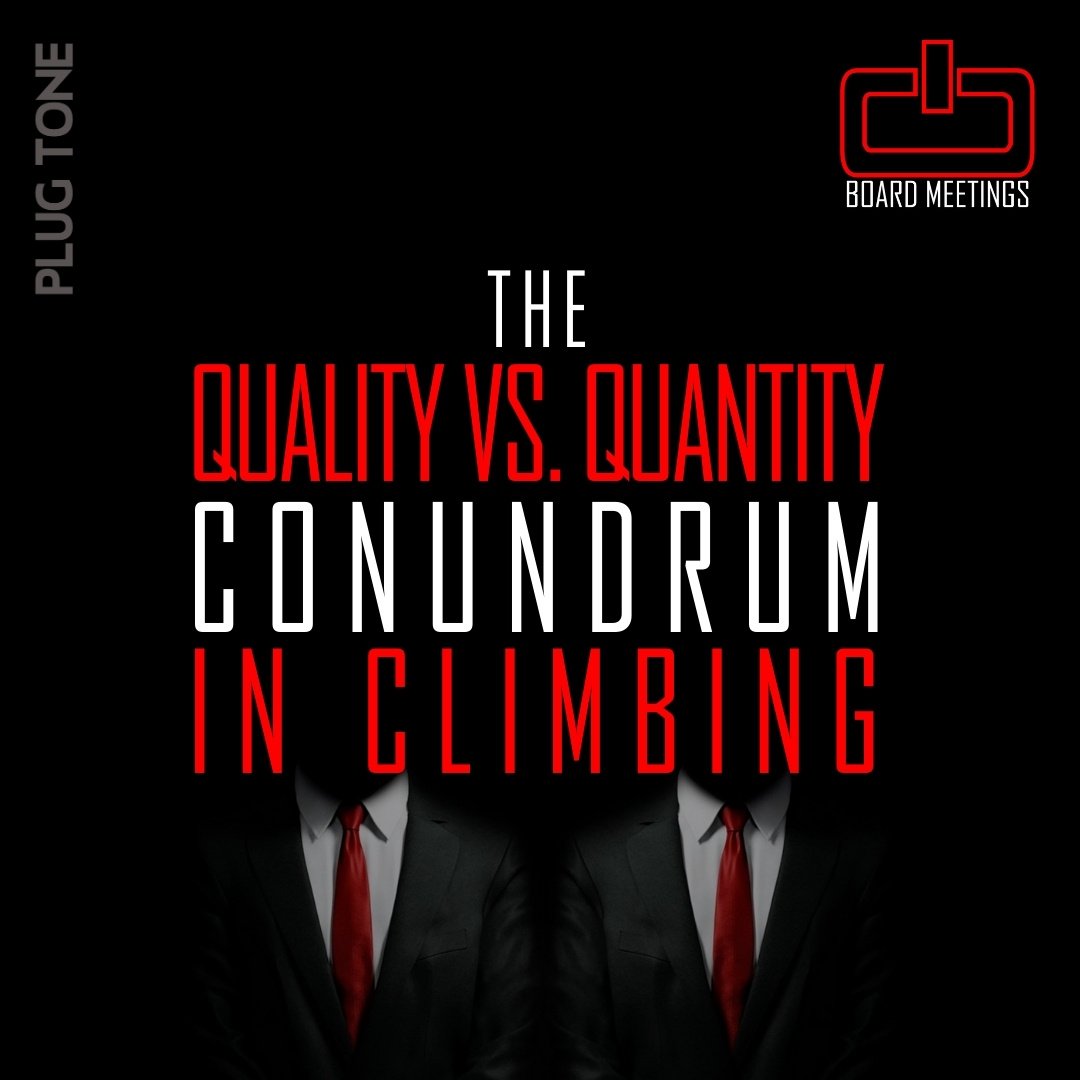
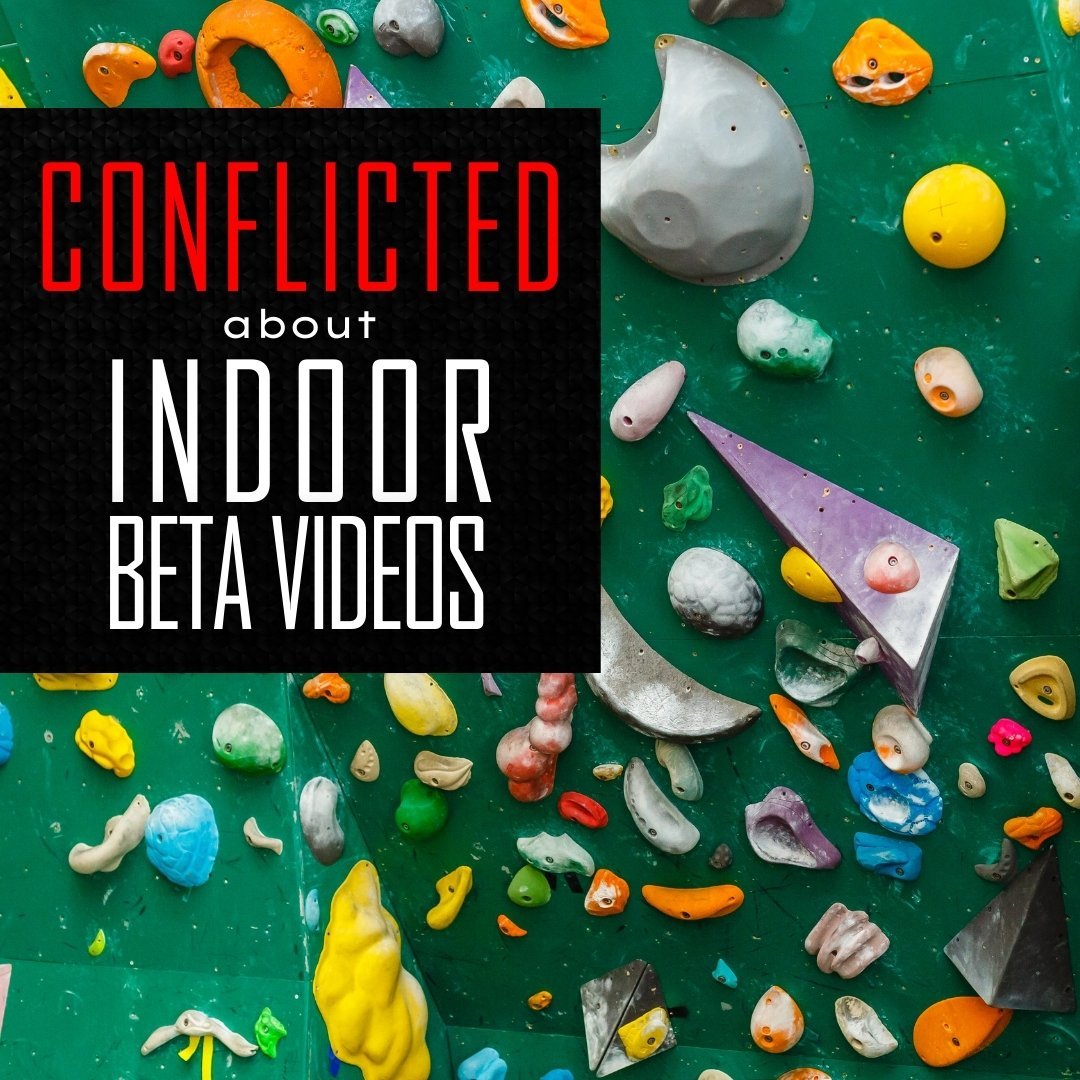
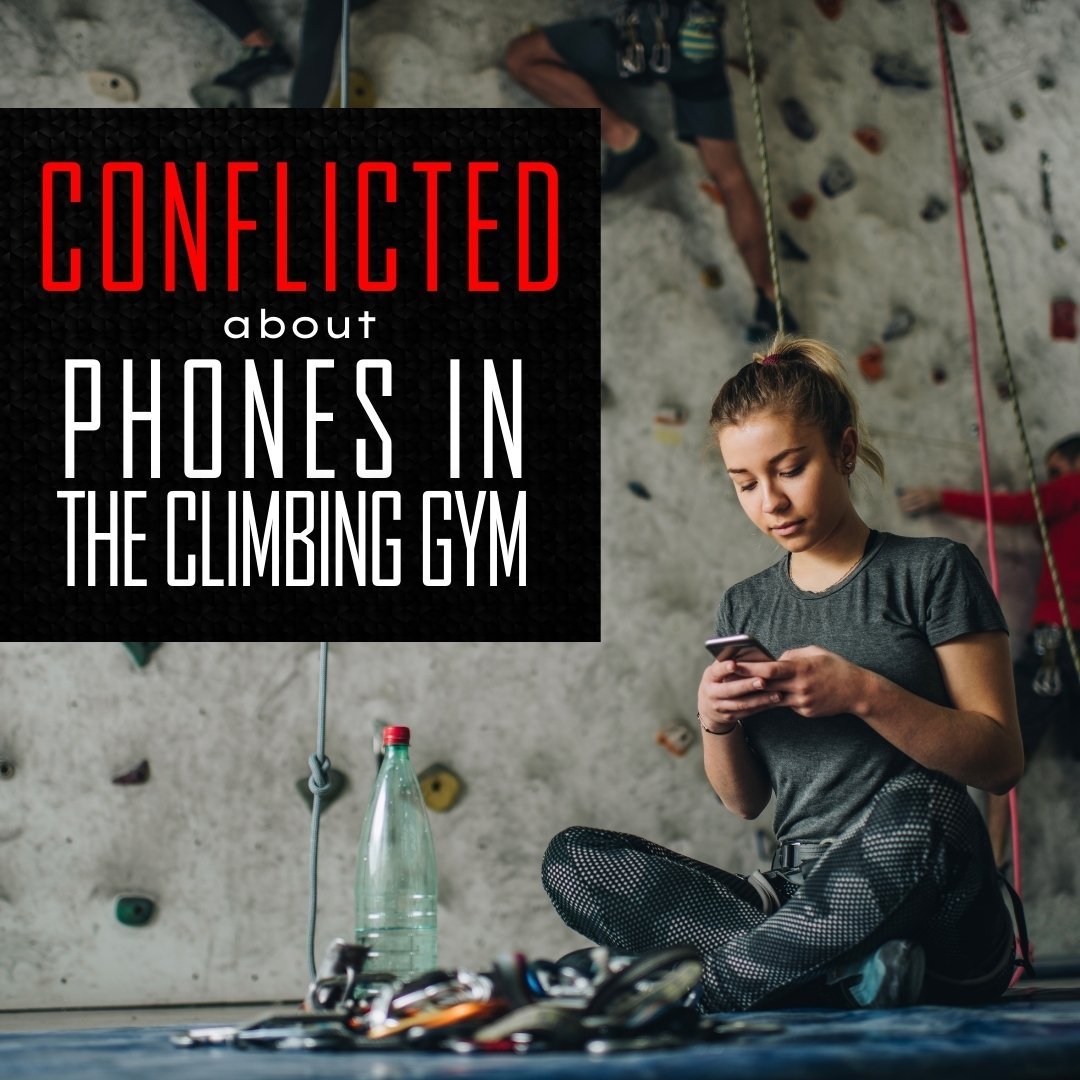
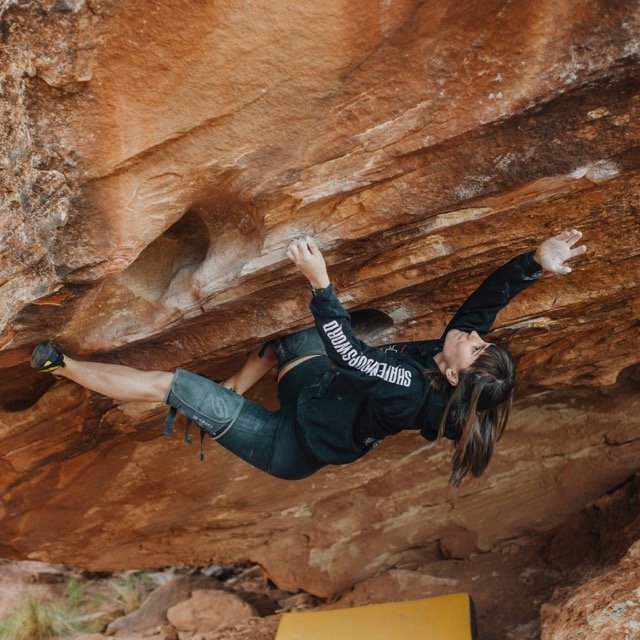

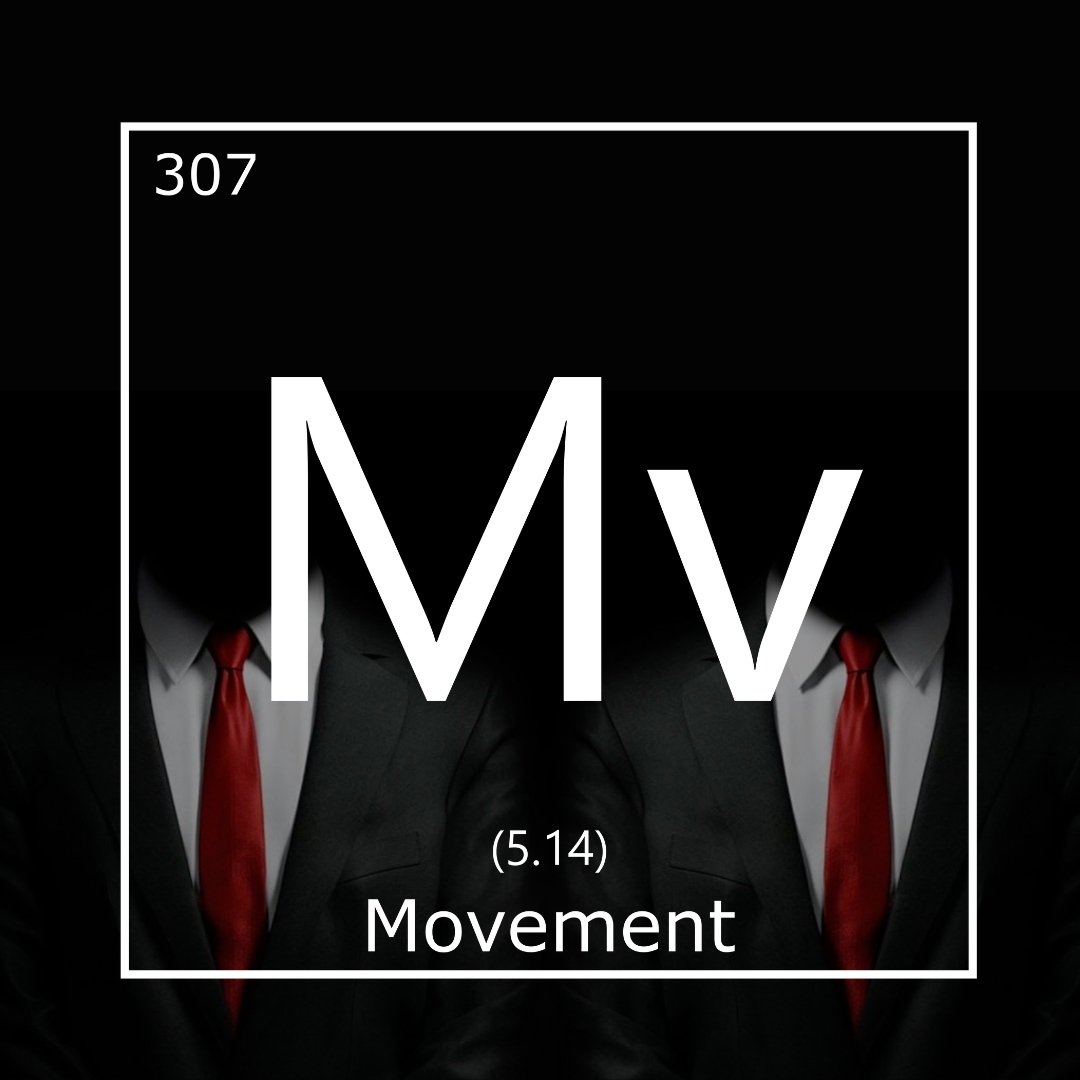
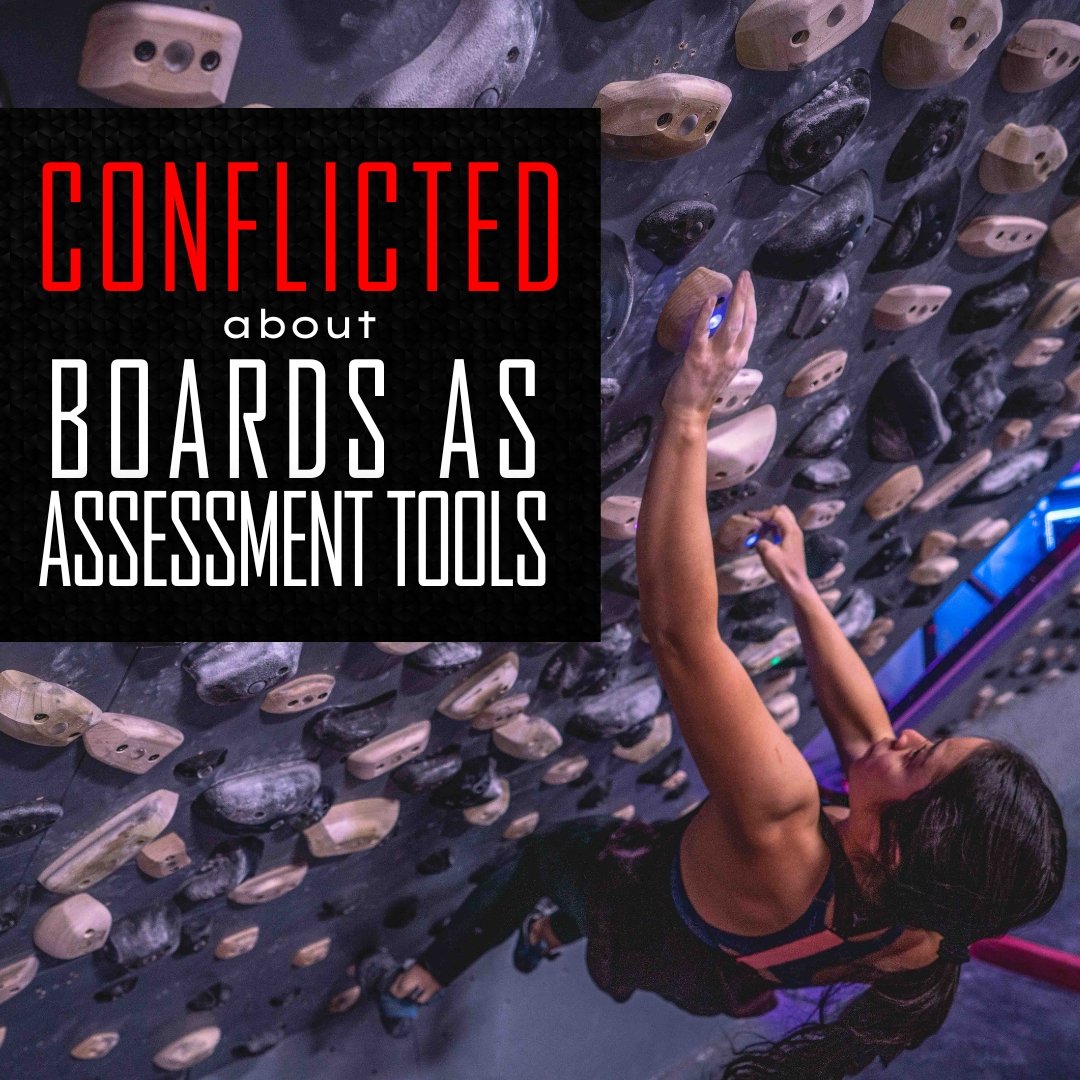
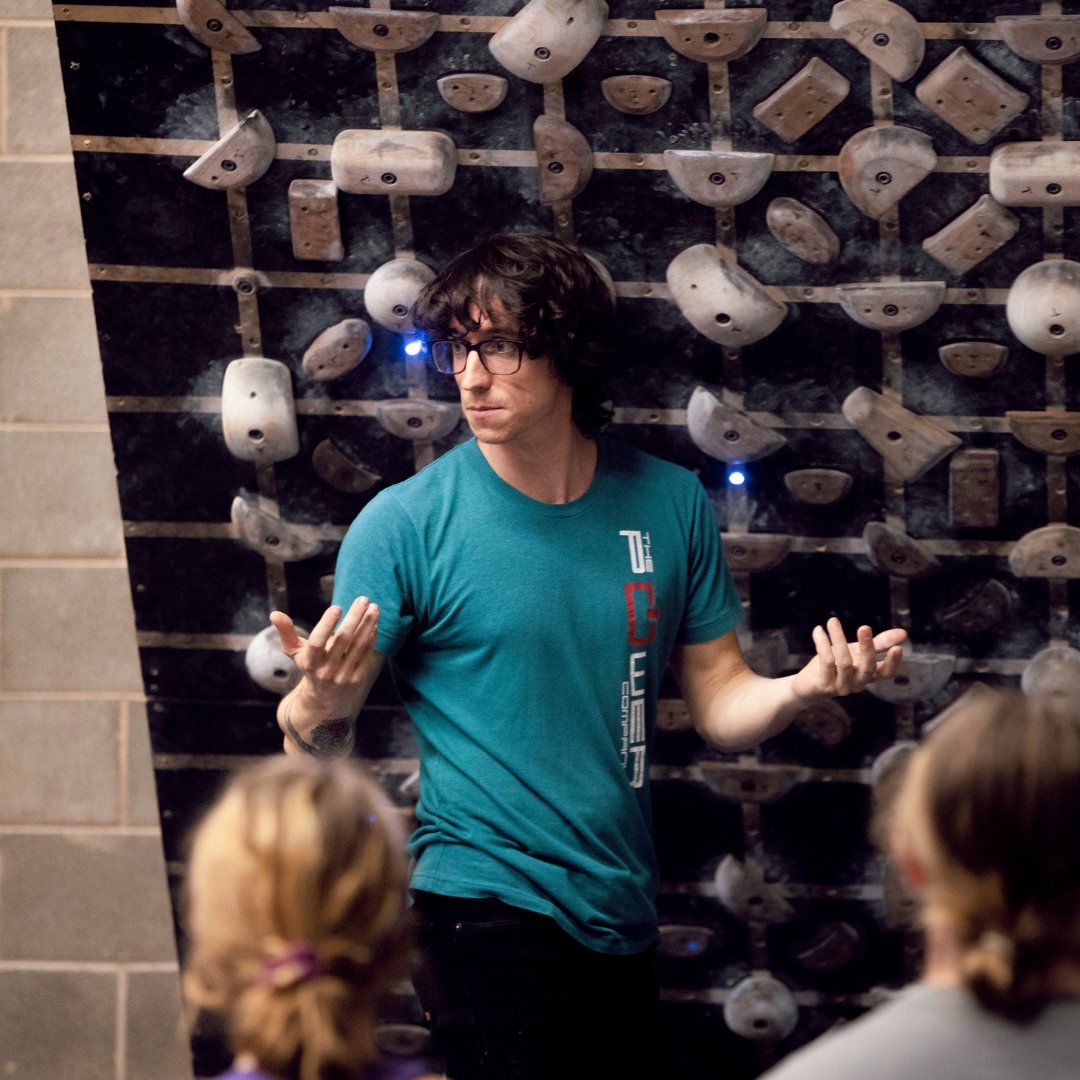
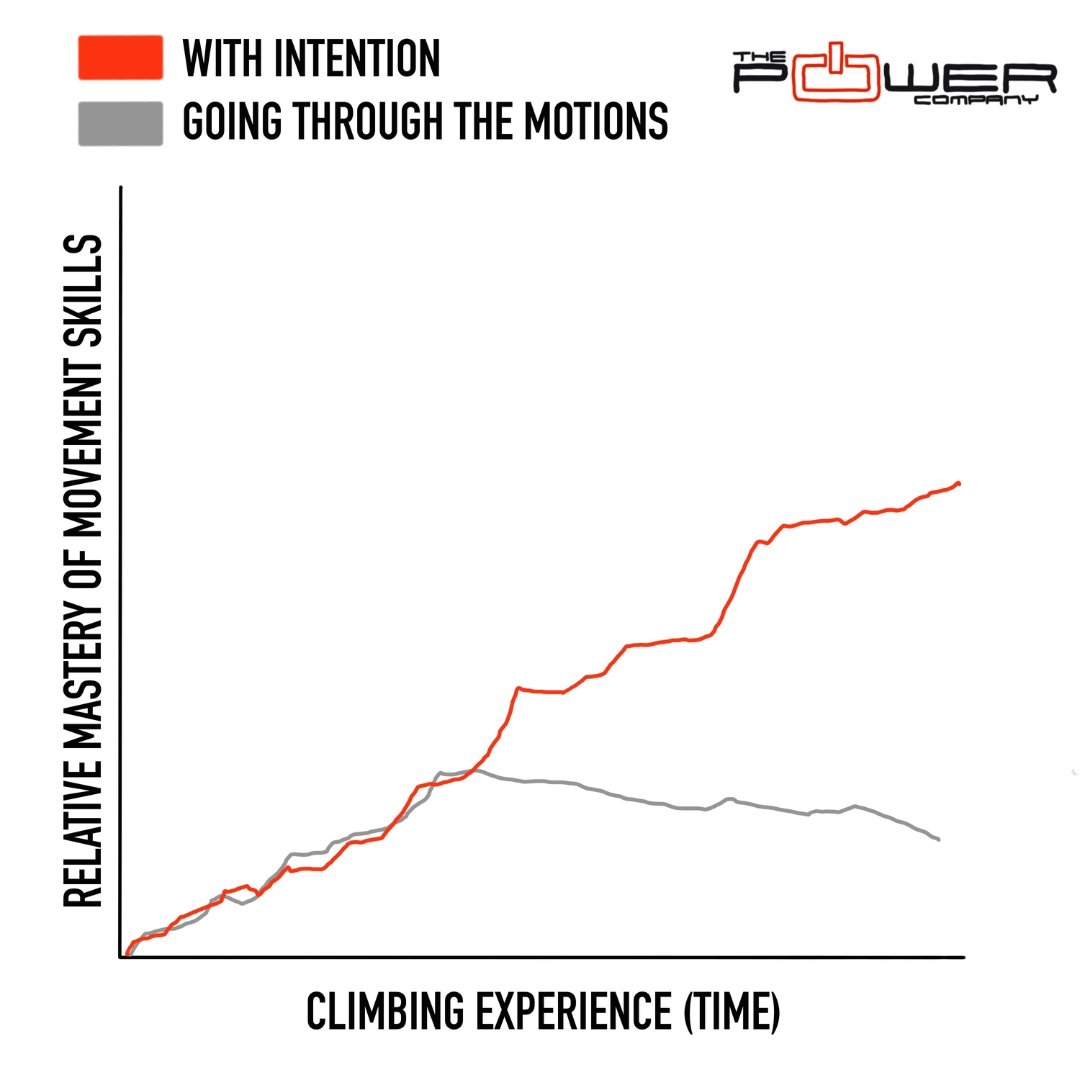




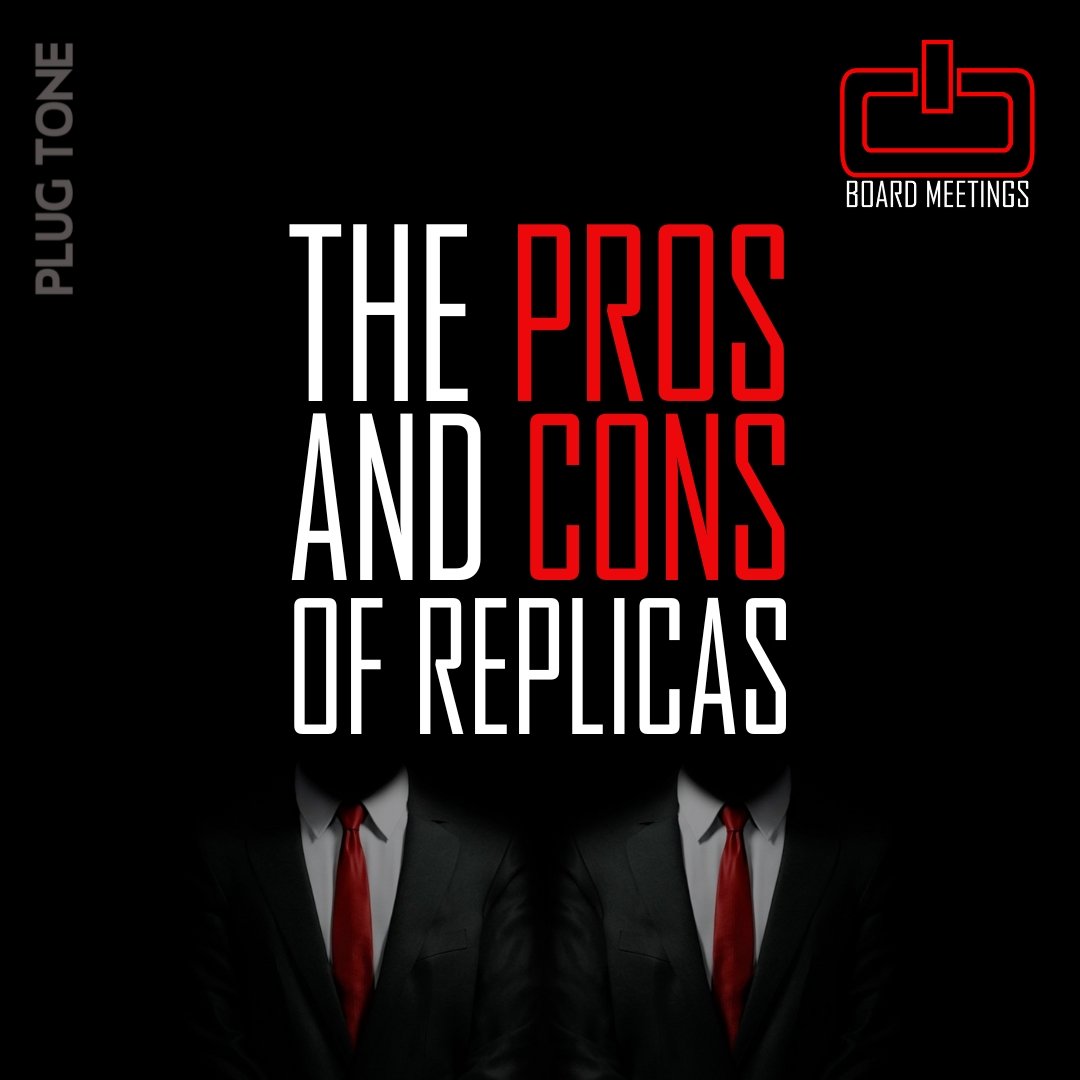


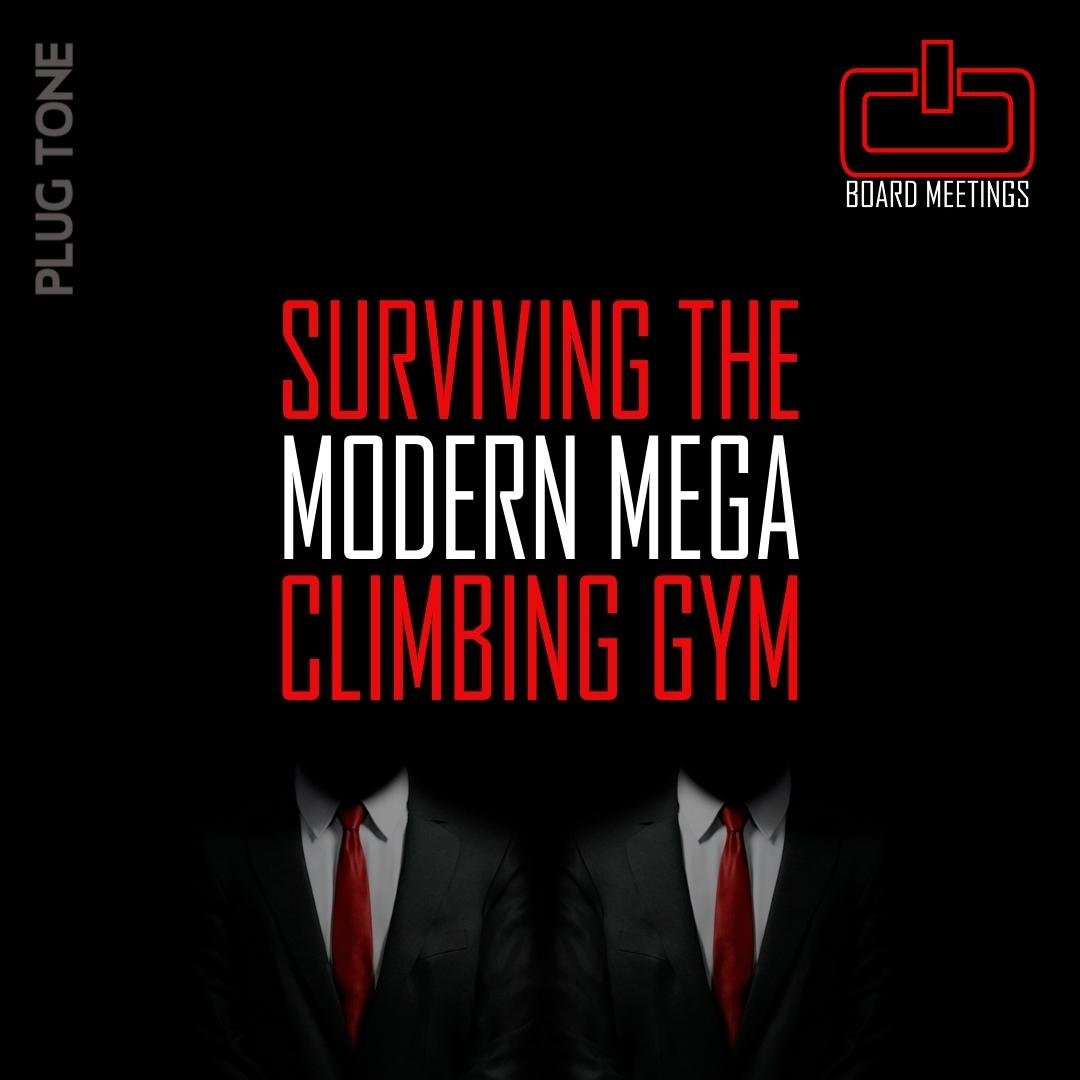


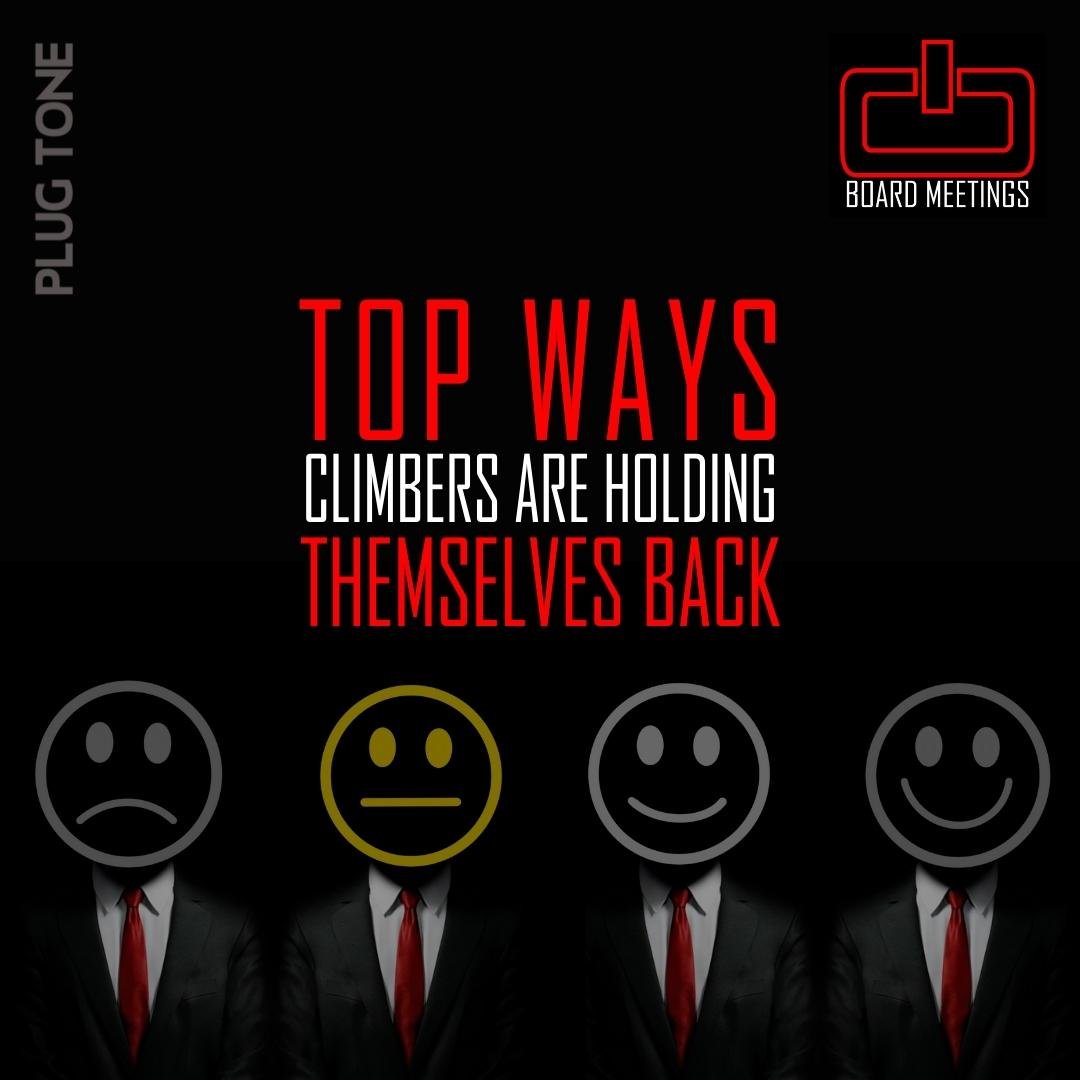



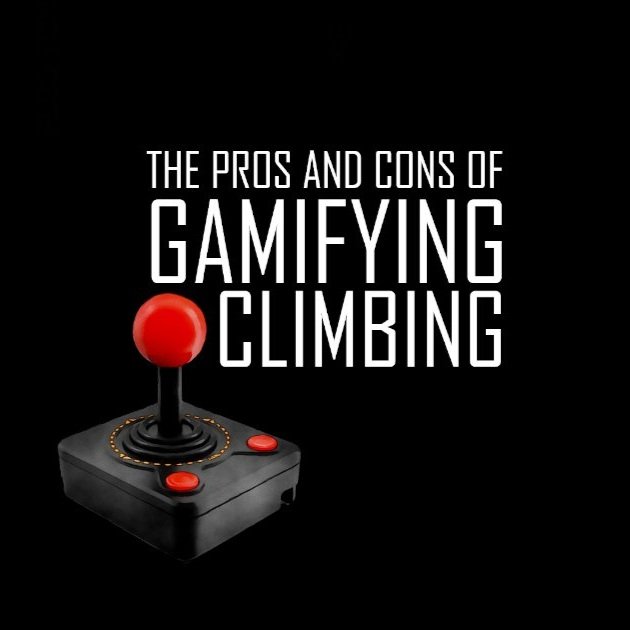

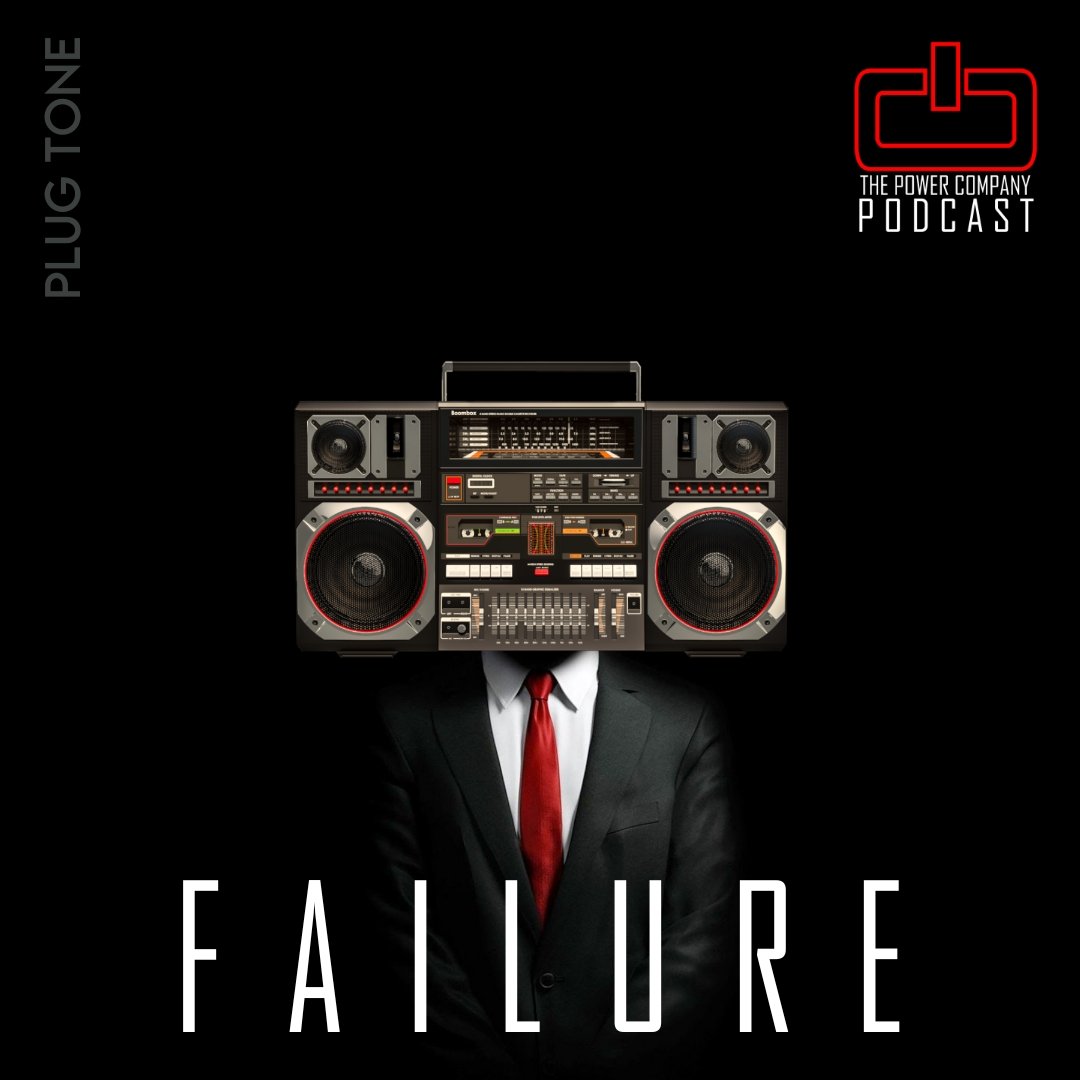




How do you know which is right for your situation?